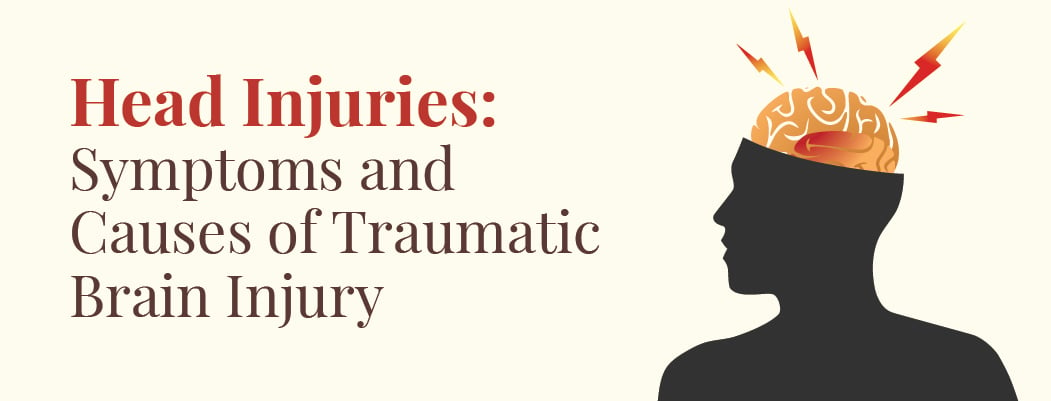Traumatic Brain Injury (TBI): Causes, Symptoms, and Treatment
April 16, 2025

Traumatic brain injury (TBI) is a type of brain injury that results from a sudden blow or jolt to the head or body that causes the brain to move within the skull. This movement can damage the brain’s delicate tissues, leading to a range of symptoms that can affect an individual’s ability to function normally. TBI is a significant cause of death and disability worldwide and affects people of all ages.
Types of Traumatic Brain Injury
TBIs are either penetrating or non-penetrating (blunt):
- Penetrating TBI happens when an object breaks through the skull and destroys brain tissue, such as with a bullet or a sharp object. This is also known as an open TBI.
- Blunt or Non-penetrating TBI occurs when a force causes the brain to twist or move inside the skull without breaking it. Common causes include falls, accidents, sports injuries, or blasts.
TBI Severity Levels
TBIs are broadly classified as mild, moderate, or severe:
- Mild TBI (concussion) makes up over 75% of cases. It can still lead to serious, lasting symptoms that affect daily life.
- Moderate to Severe TBI often results in long-term physical and cognitive problems.
What Causes a Traumatic Brain Injury?
- Falls: The leading cause of TBI, especially among older adults and children.
- Motor vehicle accidents: The second leading cause of TBI and the leading cause of TBI-related deaths.
- Assault: Intentional harm to the head or face can cause TBI.
- Violence: It may result from gunshot wounds, physical assaults, domestic violence, or child abuse. In infants, shaken baby syndrome occurs when violent shaking leads to brain injury.
- Sports injuries: High-impact sports like football, boxing, and hockey can cause TBI.
- Explosive blasts: Military combat, terrorist attacks, and industrial accidents involving explosions can cause TBI.
Symptoms of Traumatic Brain Injury
- Headache
- Dizziness
- Fatigue
- Confusion
- Nausea or vomiting
- Sensitivity to light or sound
- Moderate to severe TBI symptoms may include:
- Loss of consciousness
- Seizures or convulsions
- Memory loss or amnesia
- Speech problems
- Impaired motor function
- Mood swings or changes in personality
Risk Factors of Traumatic Brain Injury
Anyone can get a TBI, but some groups are more at risk than others. The highest risk groups are children under 4 years old, young adults aged 15-24, and older adults over 65. Men are also more likely to experience a TBI than women. Additionally, those who participate in high-risk activities such as contact sports, military combat, and construction work are at higher risk of TBI.
Diagnosis Process for Traumatic Brain Injury
TBI is typically diagnosed through a combination of physical examination, imaging tests (such as CT or MRI scans), and neurological assessments. Doctors may also ask questions about the individual’s medical history and the circumstances surrounding the injury to better understand the severity of the TBI.
Treatment for Traumatic Brain Injury
The treatment for TBI depends on the severity of the injury. Mild TBIs typically resolve independently with rest and time, but individuals may need to avoid certain activities that can exacerbate symptoms. Hospitalization and more intensive treatment may be necessary for moderate to severe TBIs.
Treatment may include:
- Medications: such as pain relievers, anti-seizure medications, and medications to reduce swelling in the brain.
- Surgery: In cases of bleeding or swelling in the brain, surgery may be necessary to relieve pressure.
- Rehabilitation: Physical, occupational, and speech therapy may be necessary to help individuals regain lost skills and improve their overall functioning.
- Psychological support: Individuals with TBI may experience emotional and psychological changes and may need counseling or other support to help them cope with these changes.
Complications of Traumatic Brain Injury
Complications of TBI can range from mild to severe and can impact an individual’s quality of life in various ways. Some common complications include:
- Cognitive deficits: Individuals with TBI may experience difficulty with memory, attention, problem-solving, and decision-making.
- Motor deficits: TBI can cause weakness, paralysis attack, and difficulty with balance and coordination.
- Emotional and behavioral changes: TBI can cause irritability, depression, anxiety, and other changes in mood and behavior.
- Communication difficulties: TBI can cause difficulty with speech and language.
How to Prevent Traumatic Brain Injury
There are several steps you can take to reduce your risk of TBI, including:
- Wear protective gear: Helmets, seat belts, and other protective gear can help prevent head injuries in sports and motor vehicle accidents.
- Prevent falls: Use safety equipment, remove tripping hazards, and install handrails to reduce the risk of falls.
- Avoid risky behaviors: Avoid high-risk activities such as contact sports, excessive alcohol consumption, and drug use.
- Practice safety at work: Follow safety guidelines and wear protective gear when working in high-risk occupations such as construction or military service.
Who Should I Consult for TBI?
If you or someone you know has experienced a head injury, seeking medical attention as soon as possible is important. Emergency medical attention should be sought if there are any signs of a severe injury, such as loss of consciousness, seizures, repeated vomiting, or confusion.
Even if the injury seems mild, it is still recommended to consult a healthcare professional. Mild TBIs can still have significant effects, and symptoms may not be immediately apparent. It is important to monitor symptoms and seek further evaluation if symptoms worsen or do not improve.
A healthcare professional, such as a doctor or neurologist, can perform a thorough evaluation to determine the extent of the injury and recommend appropriate treatment and management options. They may also refer the individual to other specialists, such as a neuropsychologist or rehabilitation therapist, to address cognitive or motor deficits.
It is also important to inform healthcare professionals of any previous head injuries, as individuals who have had a TBI are at higher risk for future injuries and may require additional monitoring and preventative measures.
Frequently Asked Questions
1. What are the psychological effects of traumatic brain injury?
Traumatic brain injury (TBI) can lead to emotional and cognitive changes, such as depression, anxiety, mood swings, and impulsivity. It may also affect memory, decision-making, and social behavior.
2. What are the long-term effects of traumatic brain injury in adults?
Traumatic brain injury can lead to lasting changes in adults, affecting physical health, thinking abilities, emotions, and behavior. These effects may be mild or severe and can continue for years or throughout a person’s life.






